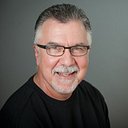The Age of Aquarius
There’s a neighborhood I lived in
For the best part of my youth.
Friends and neighbors came and went and left their souls.
Over all the years I lived there,
I was sending down my roots,
One for each year lost to counting goals.
And those roots were buried mountains,
Deep and steadfast under me,
A base on which to build my life’s success.
If whatever I was building
Ever faltered in the least,
The foundation underneath would bear the stress.
But those goals were finest powder
Scattered freely in the wind.
In a gust of thought they’re gone and soon forgot.
Impassioned whispered promises
From ladies of the night:
For a while they seem real and then they’re not.
So I move without direction,
Ever dreaming, ever free
From the bondage of commitment to a cause.
And I wonder if this freedom
Isn’t bondage in itself,
If a dreamer isn’t one of nature’s flaws.
Live and Learn
I was directionless for a substantial part of my life. I wrote the poem above in my early 20s. I’d probably left the morgue by then, dividing my time between playing in bands with dreams of being a rock star and driving a truck for a construction company … with dreams of being a rock star. Such is life in a world that encourages dreams but demands they be paid for, in cash.
There could be a story about the sources of my lack of direction. But I won’t write it. Since discovering my answer to The Big Why, I’ve foregone hindsight in favor of looking ahead.
Yes. We’re all the products of our influences, including our parents, our environments, our educations, our relationships, our choices, and happenstance. But we all engage in two processes, the first of which is inevitable (if we’re lucky), the second of which is aspirational (if we’re doing it right). Those two processes are aging and learning.
At some point, then, it seems to be nothing more or less than irresponsible to look back. Even if we’re not blaming, how much understanding do we need? How much time should we spend explaining our pasts, rather than creating our futures. And at what point does creating our futures necessitate and constitute getting over ourselves?
The most sobering considerations about our futures is that they’re always getting shorter. No wonder some people are made anxious by the mere sound of a ticking clock.
The Big Questions
It’s often said the entire history of philosophy is intended to answer one question: Why are we here? Trying to answer that question is like trying to restore this motorcycle all at once. The whole thing can’t possibly be done at once.
But it can be done a part at a time, by treating each part as a separate project. Approaching the project that way creates the opportunity to concentrate on each discrete aspect of the machine, to keep what we can control within our control, and to succeed — or fail and do over — at every aspect of the project.
And so it is with life and days.
It’s not possible to succeed at an entire lifetime all at once. That’s why God invented days. It’s not our job to construct an entire life, from start to finish, in one perfect, uninterrupted shot. That’s why God invented tomorrows. Rather, it’s our job, our responsibility, to live each day, to work on each day, one at a time, and to create or restore the integrity of that day as best we can.
Having come this far and having made as many mistakes as I have, taken as many missteps as I have, and acquired as many physical and psychic scars as I have, I humbly suggest there are only two fundamental questions all of us need to ask ourselves every day, in this order:
- What have I learned?
- What’s next?
If you can’t answer #1, you should lower your expectations for #2.
Ahead By a Head
What have I learned? Much. What’s next? I have no idea. I don’t want to know. I don’t need to know. It’s not my job to know. I can’t be responsible for knowing. I can only be responsible for reading the signs on my path (we all get them), for making sound decisions in contemplation of them (life’s about choices), for making each day as integrous as I can (what else would I do?), and for aspiring to make the next day better (ditto my last question).
That’s why I never look back. Except as a source of acquired knowledge, the past has no purpose for me. And other than watching my step in it, I seldom dwell on the present. I know, according to spiritually and intellectually enlightened self-help gurus, we’re supposed to live in the moment. But what’s the point of that? By the time we’ve thought about now, it’s already then.
I don’t have that kind of time. And even if I thought I did, I wouldn’t squander it by dwelling on anything other or less than forward-looking.
As Friederich Nietzsche’s fellow philosopher, Satchel Paige, famously said, “Don’t look back. Something might be gaining on you.”
I give special thanks here to Anthony Conrad for three things: For inviting me to connect with him on LinkedIn, for inviting me to be on his podcast, and for giving me the courage to read “The Age of Aquarius” on his podcast. Were it not for that last gift, this story may not have been written. Thank you, Anthony.
